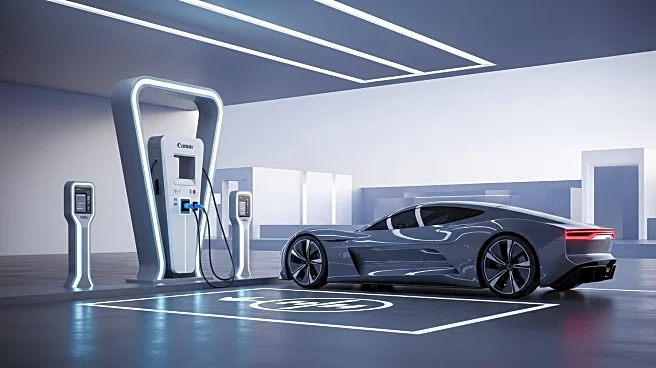What is the story about?
What's Happening?
German Chancellor Friederich Merz is set to advocate for the inclusion of 'extended range' electric vehicles (EREVs) in the EU's 2035 car emissions policy during an upcoming summit. EREVs, which are dominated by Chinese technology, can emit as much carbon dioxide as petrol SUVs when not charged. Chancellor Merz's proposal seeks to create a loophole in the EU's plan to phase out combustion engine car sales by 2035. The technology, while offering an electric range, relies heavily on petrol once the battery is depleted, raising concerns about its environmental impact.
Why It's Important?
The push for EREVs highlights a significant debate within the EU regarding the future of automotive emissions and the role of hybrid technologies. If accepted, this proposal could undermine the EU's efforts to reduce carbon emissions from vehicles, potentially allowing for continued reliance on petrol engines. The dominance of Chinese manufacturers in the EREV market also raises concerns about European competitiveness in the automotive sector. This move could impact the EU's climate goals and the transition to fully electric vehicles, affecting both environmental policies and the automotive industry's future.
What's Next?
The EU summit will be a critical platform for discussions on the future of vehicle emissions policies. Chancellor Merz's proposal may face opposition from environmental groups and EU leaders committed to reducing carbon emissions. The outcome of these discussions could influence the EU's regulatory framework for automotive emissions and the timeline for phasing out combustion engines. The decision will also have implications for European automakers, who may need to adapt their strategies in response to evolving regulations and market demands.















